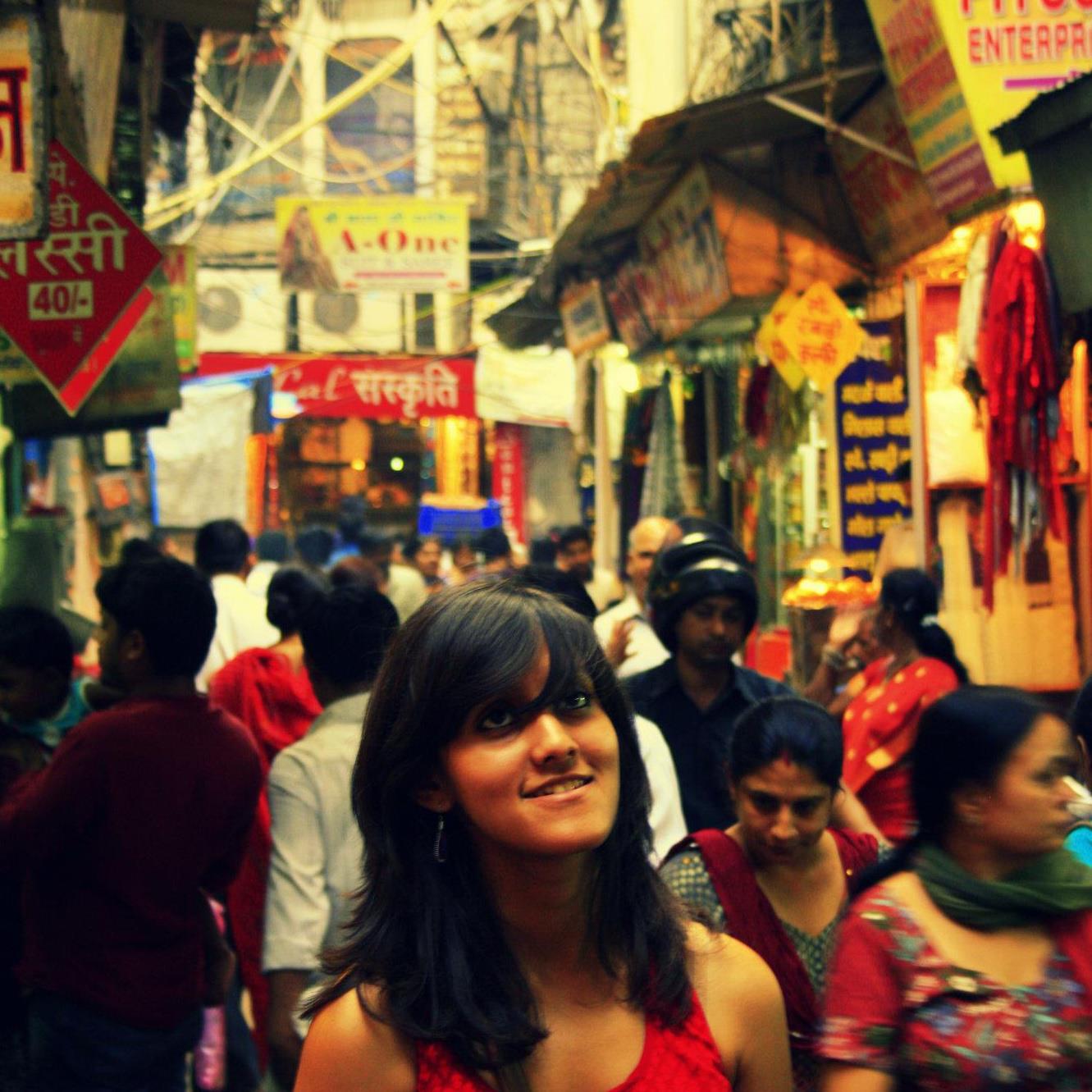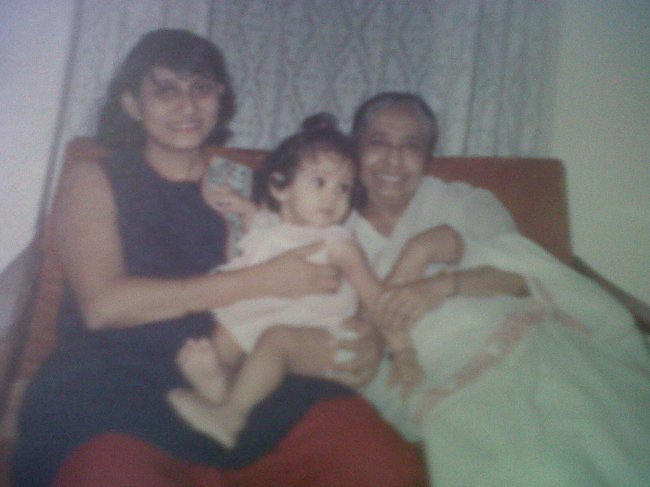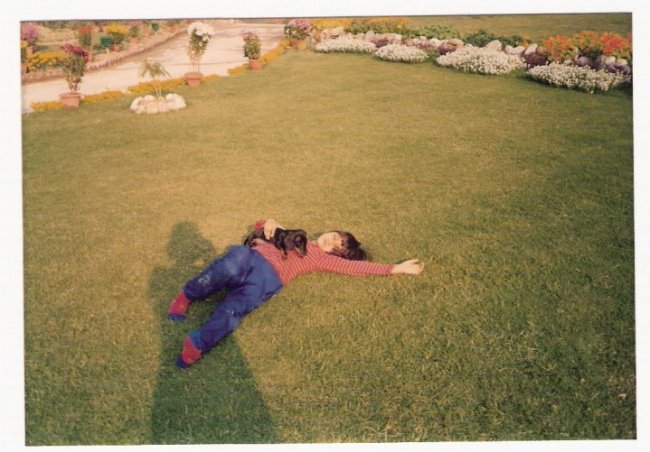It’s 5.23am on the second day of the new year and I haven’t been able to sleep a wink. Lots of contributing factors – jet lag, an inability to sleep as easily as I did even four years ago, anxieties about the resolutions made and the ones ignored.
To calm myself, I start listing all the things I’m excited about for this year. It’s not as long as I’d have hoped (probably because of the insomnia), but I very soon get to Theatre. Already four excellent plays in the diary (in true Londoner style), all with people I love.
Sleep continues to elude me.
Instagram distracts me as only it can. A slew of gratitude posts stare back at me – beaming family portraits, stunning beaches and mountains, and of course (why are they everywhere?) the inspirational 10Ks and 20Ks and bloody marathons.
Maybe doing my own gratitude post will help quell the anxieties. I start to scroll through my photos and put them in an album called ‘2023’. However the fact that this is the first album I’ve ever created (apropos new year’s resolution – be organised in my personal life) means that the task of scrolling through ~5,000 selfies, whatsapp forwards, photos, and screenshots is too much for me (new new year’s resolution that I know I won’t keep – get rid of social media.)
I decide to bring a few strands together in a gratitude post about all the theatre I’ve watched in 2023. I find that this causes a two-fold anxiety (an embarrassing self-awareness of how bougie this will sound, and deep self-doubt about my writer’s block as I’ve barely written a word outside work and Whatsapp in 3 years.)
Oh well. It’s now 5.39am and no sleep is on the horizon.
—
I start by listing all the plays I’ve watched. This is a meticulous research task involving a wealth of source material – TodayTix past orders, a Gmail search of ‘theatre’ with attachments, and Whatsapp messages. My left brain tries not to get side-tracked by the memories that are springing up, and is impressed when the list reaches 17. It adds the handful of concerts. It decides not to double-count the two I watched twice, and to count the Fringe shows under one header. My right brain decides that FRINGE deserves to be in caps as one of those rare occasions where reality exceeds sky-high expectations in an otherworldly, outerspacey manner. The list is at 21.
Now comes the difficult part. How to write about these. A paragraph each seems too prosaic. Yet there are so many ways to categorise that the Consultant left-brain boggles –
- By genre: 8 political, 8 (auto)biographical, 5 musicals (Nutcracker loosely defined), 3 concerts, 1 immersive, 1 fantasy, 6 comedies, 6 tragedies, 1 horror.
- Pro: Conventional categorisation could lend itself to curing writer’s block.
- Con: Not MECE (mutually exclusive collectively exhaustive). Too many political tragicomedies.
- By level of enjoyment: 5-stars to 6 (FRINGE included), 4-stars to 9, 3-stars to 5, and one-star to 1.
- Pro: As above. Bell curve also deeply satisfying.
- Con: Likely to be subject to recency bias Can’t quite remember the details of the ones from January-March and therefore ended up giving most of them a 4 or 5, whereas I’m more critical of the recent ones.
- By companion: 6 with Tom, 6 with Wen, 4 with Ashleigh, 3 with Monica, 3 with Christy, 2 with my parents, 1 with Mohini, 0.75 alone (also bits of FRINGE), and 1 each with visiting family friends, colleagues-turned-friends, and friends-I-hadn’t-seen-for-a-while.
- Pro: Checks the ‘gratitude post’ box and allows me to ramble on (it’s now 6.29am).
- Con: Also not MECE as I watched many of these with various permutations of the people below. In addition, rather self-absorbed
My right brain battles with my left brain’s urge to do a weighted multi-criteria assessment and picks the third.
—
Note to anyone who’s managed to get this far: Given the non-MECEness of this categorisation, plays that involved multiple people below have been allotted somewhat randomly (or not randomly, but without the Left Brain’s logic.)
With Tom: Theatrically speaking, we start our year on Tom’s birthday with Burnt City – Punchdrunk’s genre-defying immersive experience telling the stories of the Trojan and Greek (gods and mortals) before and after the fall of Troy. I’d ‘done’ the experience in 2022, but wanted to repeat it with Tom because I knew we’d enjoy experiencing the fantastical, otherworldly, outside-the-lines production together. Later in the year, we choose Pillowman because absurdist black comedy is our thing. However, Martin McDonagh’s script as told by Lily Allen turns out to be too grisly and gruesome even for us. My last play of the year is Pandemonium – a Shakespearean comedy written by the great Armando Iannucci about the great Boris Johnson’s handling of the Great Pandemic. It lives up to its name. With truly unforgettable characters like Matt Hemlock, Riches Sooner, and Less Trust, it provides a hilarious vent for the country’s collective frustration. It’s only fitting that we guffaw through this together, a reflection of our shared sense of humour and political (i.e. moral) values. It’s been a wonderful year.
With Wen: Wen continues to be my most trusted and dependable theatre-buddy, because of her long love affair with the London stage, her affinity for 24X7 Whatsapp, her booking skills, and our almost-identical tastes. Our regular West End sojourns help me cope with her abandonment. The Father and the Assassin is one we both regretted missing last year so I set a reminder on my phone when tickets go on sale and book the tickets whilst on a work call. It’s worth the subterfuge, and later, the magnificence of National Theatre’s Olivier stage, telling the story of Indian nationalism, colonial violence, and present-day right-wing fascism through the eyes of the protagonist Nathuram Godse, Gandhi’s assassin. We don’t expect to laugh in the first act, but the Godse actor makes us. After the second act, we are shell-shocked and whitefaced, even though we knew what was going to happen. As always, it’s a pleasure to critique the play with Wen after, given her knowledge of global history, and our shared values/experiences of fascist governments. Pygmalion, later, is a vastly different experience, though also tragic in its own way. Again, this is one we’ve looked forward to for months because we both loved the play growing up. And although the reviews will later say that the Higgins-Doolittle chemistry could have been better and the adaptation less stale, we reminisce together about the utter genius of Shaw.
With Ashleigh: I’ve not made many new friends in my thirties, but theatre (also her charm, food, cocktails, and Wen) have brought me Ashleigh. Last year (in addition to many of the plays mentioned above and below) we watch Amadeus together at the Royal Albert Hall – the symphony orchestra plays the score whilst the slightly hammy American film is shown on the screen. Real musicals, however, are our shared interest, and we’ll need to watch more of those this year.
THE FRINGE FESTIVAL: This needs a post of its own (I’d even planned to write one, and failed, like on several occasions in the last 3.5 years.) Suffice it to say that my 2023 highlight was spending three days in uncharacteristically sunny Edinburgh with Tom, Wen, and Ashleigh, watching (together and separately) offbeat plays and comedy shows, and participating in weird immersive escape rooms and late-night game shows. Woke and wonderful – we’re making it an annual thing. Perhaps they’ll use my under-appreciated spreadsheet this year, or maybe I’ll be spontaneous. Only time will tell.
With Monica: The first play we watch in the year (with Wen) is the acclaimed Lehman Trilogy. Alas, we both end up napping in the first act. This cannot be blamed on the beautifully staged (if dense) play, but on our own exhaustion from a tough work week. We revive ourselves with overpriced caramel popcorn, icecream, and Coke for Acts 2 and 3, and it becomes easier to follow this (cautionary?) tale of American capitalism. We both sit there petrified at the thought of a potential move. But luckily, if selfishly, it doesn’t pan out, and my London lifeline extends itself.
The second play, Sylvia, I owe to Monica’s deep and almost-enviable passion for hip hop (because no matter how much I love the theatre, I know my true level of true investment will never be the same). This is a Hamiltonesque hip-hop musical with a predominantly black and female cast about the suffragette Sylvia Pankhurst. The script is clever and witty, and the music full of deep and empowering feeling, much like the recommender. Accidental Death of an Anarchist we choose together on a lazy weekend early in the year, a collective decision to watch plays in independent theatres. It’s a more traditional political farce, but Dario Fo’s 1970 Italian classic has been aimed with searing, self-referential, audience-baiting British wit at the Met. We’re in absolute splits throughout, marvelling at the main actor’s high-octane performance, till suddenly the number of deaths in police custody starts to count up on the cyclorama, and there’s pin-drop silence in the audience. I’ll be grateful, not for the last time in a difficult year for global politics, for the perfect company to laugh when we actually want to shout or cry.
With Christy: We (with Wen) go watch On the Ropes for the ‘flatmate special’ of Christy’s birthday celebrations. As always, Christy has managed to make a well-considered, meaningful choice at an independent theatre, and as always, we have to risk life and limb on the British transport system to get into our seats on time. This is the story of Vernon Vanriel aka The Entertainer who arrived in Britain as part of the Windrush generation and rose to fame as a Black British boxer before becoming trapped in Jamaica, fighting for British citizenship. It checks all our boxes – Musical (for Christy and me), Tragicomedy (for Wen and me), Political (for us all.) A few months later, we’re back at another independent theatre for School Girls: Or, the African Mean Girls Play, a light-hearted rendition of the Caucasian original, but set in Ghana with a racial/Global South dimension. Afterwards, at a riverside pub, we spend more time being nostalgic about school and the original film, than we do discussing the holes in the script (testament to an afternoon well-spent.) The third play Christy and I watch together is Operation Mincemeat, a riotous farce about a real-life WWII spy escapade. We laugh uproariously at clever quip-after-quip, and choreographed chaos, and cry during a show-stealing song about the personal tragedy of war. The whole experience is bittersweet because I know it’s the last time we’ll be watching a play together as flatmate-friends (and that too, Covid flatmate-friends) before Christy’s move to the Netherlands. However, at the time of writing this, I’ve already seen C twice since she left and am confident that there’ll be many more plays together.
With Mohini: Mohini puts the glad in rags, and one of my great disappointments in 2023 is the gaping hole of a shared costumed immersive experience. An impromptu gender-questioning As You Like It is the only play we watch together. But being at the Globe with her reminds me of her Delhi University ShakeStalking days. And also that she’s my old England/old Malini mainstay with whom I shall watch a lot more theatre this year, starting with Ralph Fiennes and Indira Varma in Macbeth (we may dress up.)
With Ma-Baba: When they come to London in the summer, we watch Accidental Death of an Anarchist together. We spot Roger Allam in the crowd (my second celebrity sighting, the first being a full conversation with Stormzy, courtesy Monica.) Watching the political farce (again) with them is fitting, as expected, and we rue the world’s various right-wing regimes together after (note to reader in flashing lights: common theme.) But the icing on the cake is a BBC Prom at Royal Albert Hall where we listen to Mahler’s 3rd, with which none of us is familiar, but all of us are mesmerised. Happily wine-drunk and pierogi-full after, I think about how lucky I am to have these visits, despite passing time making them harder. And also, how special it is to be able to do something small for the OGs who’ve given me a love for the performing arts, as wel as the privilege to enjoy them.
With others: I’ve clearly gone on for longer than I expected (it’s now 8.30am) but a few more notable mentions:
- Dancing at Lughnasa – a beautifully staged memory play set in a poor 1930s Irish county which I watched with kindred colleague Jenna. Starring the nun and Orla from Derry Girls! Siobhan McSweeney (the former) is magnificent.
- Lyonesse – weird ‘Me Too’ play with Lily James and Kristin Scott Thomas. Not great, but have wanted to see KST for ages. Watched this alone (for unforeseen reasons) and remembered that I love doing that and should do it more.
- Nutcracker – brought in my birthday at the Royal Opera House. Spell-binding sets and production.
- Six – bucket play item crossed off courtesy Rini Didi. Clever and uplifting.
- Robin Hood – this is what I gave one star’. On the bright side, I caught up with friends I hadn’t seen in a while and saw Regent’s Open Air Theatre for the first time.
—
I’ve just reread the above and remain mortified about both my fading writing skills and pretentious list. But I’m sleepy and shall post this to remind myself that both theatre and writing will bring me tremendous joy this year. Perhaps I shall combine them (without a resolution).










